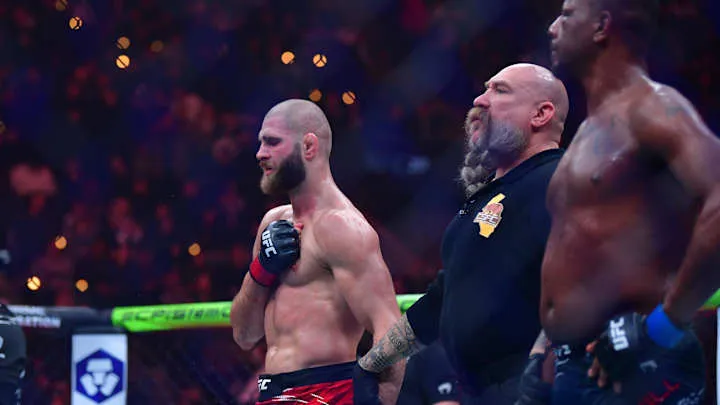Jamahal Hill continuously blames the UFC for his career failures—What really happened?

Jamahal Hill, a prominent UFC light heavyweight fighter and former champion, has been making waves both inside and outside the octagon. Known for his dynamic fighting style and resilience, Hill has also attracted attention for his outspoken criticism of the UFC. Over the years, Jamahal Hill has blamed the UFC for various career setbacks, sparking debates among fans and analysts about whether his grievances are justified or exaggerated.
Let’s delve into Hill’s statements, the context behind his criticism, and whether his accusations against the UFC hold any weight.
Hill’s Criticism of the UFC
Jamahal Hill’s complaints about the UFC have been multifaceted, ranging from issues with promotion to concerns about matchmaking and fighter compensation. One of Hill’s primary grievances has been the lack of marketing support he feels he has received. Despite his accomplishments in the light heavyweight division, including capturing the title, Hill has argued that the UFC has not given him the recognition he deserves.

In interviews and on social media, Hill has expressed frustration about being overshadowed by other fighters, particularly those with bigger personalities or more established fanbases. He has claimed that the UFC prioritizes promoting stars like Conor McGregor and Israel Adesanya, leaving rising talents like him in the background.
Hill has also criticized the UFC’s handling of matchmaking, suggesting that he has been paired with opponents who don’t align with his career goals. He has hinted that the organization’s decisions have hindered his ability to build momentum and establish himself as a household name.
Does Jamahal Hill’s Criticism Have Merit?
While Jamahal Hill’s criticism of the UFC has sparked controversy, some of his points are worth considering. The UFC’s promotional strategy has long been a topic of debate, with many fighters arguing that the organization focuses disproportionately on a select few stars.
Hill’s concerns about fighter compensation are also part of a broader discussion within the MMA community. Numerous fighters have raised issues about pay disparities and the lack of financial transparency in the UFC. If Hill feels underpaid or undervalued despite his achievements, he is not alone in voicing such concerns.
However, some analysts argue that Hill’s grievances may stem from his own shortcomings rather than the UFC’s actions. Unlike fighters with larger-than-life personas, Hill’s relatively quiet demeanor outside the octagon may have limited his marketability. The UFC often relies on fighters to build their own brands through social media, interviews, and fan engagement, areas where Hill could potentially improve.
Additionally, Hill’s criticism of matchmaking may overlook the complexities of the UFC’s decision-making process. Factors like rankings, injuries, and availability play a significant role in determining matchups, and it’s not always possible to cater to a fighter’s preferences.
Fan Reactions to Hill’s Complaints
Fans have been divided in their reactions to Jamahal Hill’s criticism of the UFC. Supporters of Hill argue that his frustration is justified, particularly given the UFC’s history of uneven promotion and questionable matchmaking. They believe Hill deserves more respect and recognition for his accomplishments.
On the other hand, critics view Hill’s complaints as counterproductive. They argue that his focus should be on performing in the octagon and building his brand rather than blaming the UFC for perceived shortcomings. Some fans have also pointed out that Hill’s public criticism of the organization could harm his relationship with UFC management, potentially impacting future opportunities.
What Really Happened Behind the Scenes?
The tension between Jamahal Hill and the UFC likely stems from a combination of factors. While Hill’s frustrations may have some basis in reality, they also reflect the challenges of navigating a competitive and often unforgiving industry. The UFC operates as both a sport and a business, balancing the need to promote individual fighters with broader organizational goals.

For Hill, the key to resolving these issues may lie in finding common ground with the UFC. By improving his communication with the organization and taking a proactive approach to self-promotion, Hill can strengthen his position and secure the recognition he seeks.
Conclusion: A Fighter’s Frustration or a Systemic Issue?
Jamahal Hill’s criticism of the UFC highlights the complex dynamics between fighters and the organization. While some of his grievances may be valid, others appear to reflect broader industry challenges that extend beyond any single fighter.
As Hill continues to compete at the highest level, his ability to balance his public persona with his in-cage performance will be crucial in determining his legacy. Whether his criticism sparks meaningful change or simply fuels further debate, one thing is clear: Hill remains a fighter with the potential to make a lasting impact, both in and out of the octagon.







